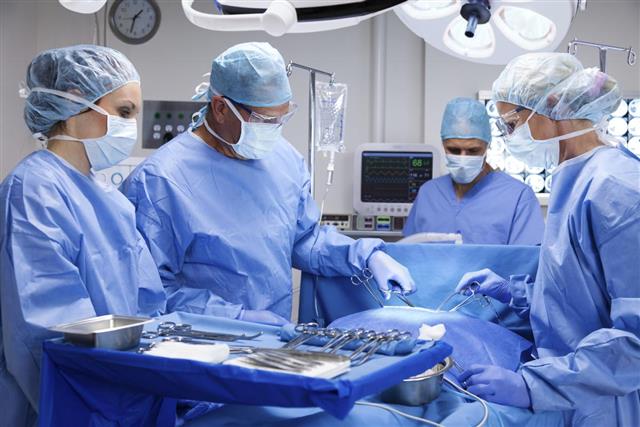
The health industry has seen substantial growth in the last few years as a result of which, the salary of a surgical technologist has also experienced steady increment. What follows is a breakdown of recent salary data in this profession, along with information as to what the job itself consists of.
The salary or remuneration of any job depends on various factors, the most important being educational qualification and the breadth of experience. According to a recent survey, the profession of a surgical technician is slated to experience steady growth till 2020. A surgical technologist is also known as ‘a scrub’, a ‘scrub tech’ or a ‘operating room technician’. A surgical technologist works as a support to the surgeon performing a wide variety of tasks, before, during and after the operating procedure. The following article attempts to provide an insight into the compensation offered, and the job profile of a surgical technologist.
Salary Data
- According to the Bureau of Labor Statistics the mean annual wages for surgical technologists is $42,460.
- Also, the mean hourly wages are $20.41.
- States with the best mean salaries in this sector are Nevada ($53,990), Hawaii ($52,340), Alaska ($52,130), California ($51,940), and Massachusetts ($49,500).
- States with highest concentration of jobs in this sector (per thousand) are District of Columbia (1.27), Mississippi (1.25), and Oklahoma (1.65), and Tennessee (1.56).
- Growth in this sector is likely to be around 20% in the period between 2010-2020.
- Surgical technologists can advance their careers by specializing in specific fields such as neurosurgery or heart surgery.
* Data from the Bureau of Labor Statistics (BLS).
Who is a Surgical Technologist?
During World War I, nurses couldn’t always accompany doctors onto the battlefield, so the armed forces inducted ‘medics’ who worked directly under the supervision of the surgeons. These medics later came to be known as operating room technicians, and later as surgical technologists. A surgical technologist, under the supervision of the surgeon, ensures that equipment is functioning and the operating environment remains hygienic and sterile. He also looks after the patient’s safety during an operative procedure. A vast majority of surgical technicians work in hospitals, at physicians and dental clinics, while many are also employed with ambulance services.
What does he do?
- Monitoring operating room environment: Surgical technologists are a part of the operating room team of doctors, anesthesiologist, and nurses. The primary work profile of a surgical tech is to keep the operating room environment sterile for the doctors and nurses to perform their operative duties.
- Preparing for procedures: They have to prepare the operating room before a surgical procedure by procuring and arranging sterile instruments for the surgeon. They also have to set up surgical instruments and machines, and prep the operation room and robotic equipment for the doctor, during surgery.
- Pre-surgery prep: A surgical tech needs to prepare a patient before the surgery, by giving him post-operative instructions, disinfecting incision sites and collecting samples for laboratory inspections.
- Support for surgical procedures: They care for the patient during surgery, by monitoring vital signs and the surgical procedure itself. Scrubs also operate suction machines and diagnostic equipment. They retrieve the patients tissue samples, and suture incisions, along with maintaining a written medical record of the procedure.
How do I become one?
- A candidate must first obtain an associate degree, from a school accredited to the Commission on Accreditation of Allied Health Education Programs (CAAHEP) or, The Accrediting Bureau of Health Education Schools (ABHES), both of which offer accreditation to schools that offer training programs for surgical technologists.
- After obtaining an associate degree, one can opt for national certification. This is beneficial, as a majority of hospitals across the country only hire certified techs.
- National certification can be obtained by taking exams conducted by The National Board of Surgical Technology and Surgical Assisting (NBSTSA), which offers the Certified Surgical Technologists exam (CST). One can also go for the Tech in Surgery Certified (TS-C) examination, offered by the The National Center for Competency Testing (NCCT).
- The CST certification requires a renewal every 4 years whereas the TS-C every 5 years.
- The course consists of education on anatomy, pharmacology, sterile techniques, patient care and surgical procedures. Some hospital-based programs last for 6 months to a year, and are for licensed practical nurses and other health professionals with medical backgrounds.
The position of a surgical technologist is a crucial one in the operating room. Lives depend on surgeons and they, in turn, depend on assistants such as nurses and operating room technicians to do their job, with diligence and professional expertise. As we have seen, there is a growing demand for medical support professionals in the health industry, and the job of a surgical technologist will remain a rewarding one in the years to come.



